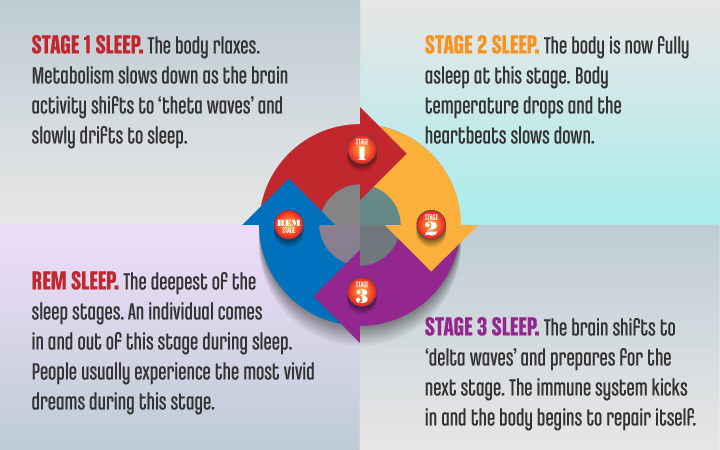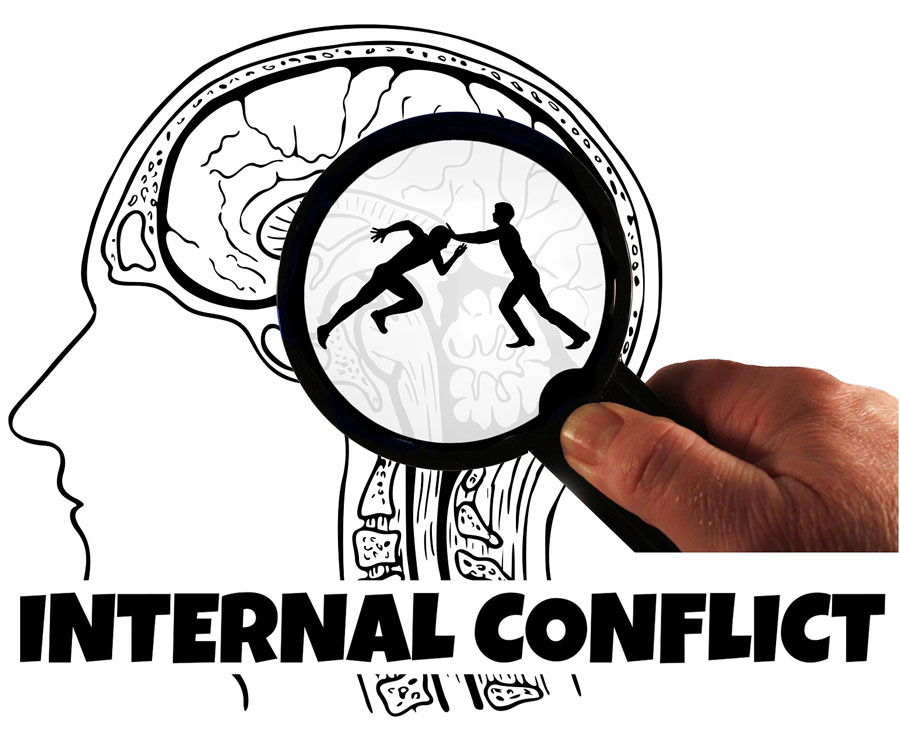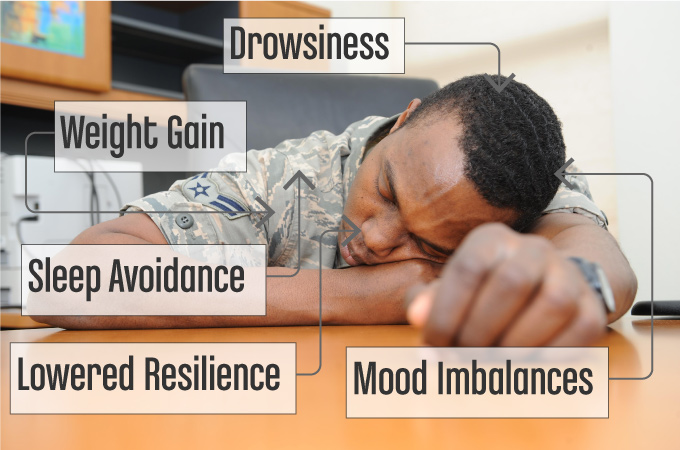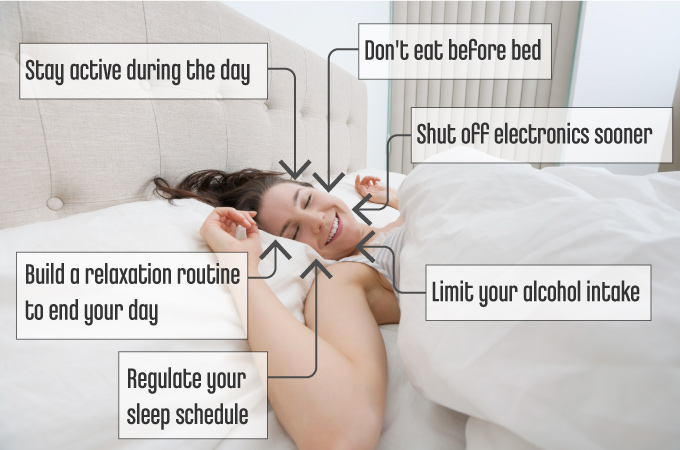For all the advancements we’ve made in science and the research that’s been conducted, many mysteries remain about what functions sleep serves. For everything we know (or rather, think we know), we never seem to get closer to understanding what is going on in our bodies during sleep. The most elusive piece of the puzzle may very well be dreams and how they influence a good night’s rest. In this article, we will discuss how dreams affect sleep.
Do your dreams affect your overall sleep quality? The answer is yes, though how it does so isn’t as straightforward as you may think. While we know for certain that sleep itself is restorative (and necessary for maintaining good health), dreams are almost separate from that. Though they only occur in sleep, dreams aren’t the same as sleep, at least functionally.
If reading the above has already got you confused, don’t worry. In this article, we’ll be tackling the relationship between dreams and sleep quality in an easy to understand way. We’ll start by talking about dreams, defining sleep quality, and examine what happens to your body when you dream to make the matter as plain as possible. Once you have a better understanding of the question and its answer, we’ll make some recommendations on how to improve your dreams and overall sleep quality.
What Are Dreams?
Everyone knows what a dream is—the movies that play in our minds while we sleep. But a more concrete, scientific answer remains elusive. Understanding what a dream requires us to know why we dream, and that’s where research hits a brick wall. We have no definitive explanation for why we dream in sleep, though theories have been put forward, including:
- Subconscious wish fulfillment. Popularized by Freud, he suggested that dreams are how our consciousness explores ideas and scenarios that we wouldn’t allow ourselves to when we’re awake.
- Self-performed psychotherapy. Another theory posits that dreams are how our mind unpacks the events of the day and commits them to memory. This school of thought has been used to justify analyzing dreams as a therapeutic tool and to explain the source of nightmares.
- Random nonsense. This theory branches into several ideas itself, but at their core they propose that signals our brains send during sleep create the images and sounds that accumulate in dreams.
These are just generalizations and only scratch the surface of all the varied explanations for sleep that have popped up throughout human history. While these three are the most widely known and discussed, we’ve chosen them to illustrate a greater point: we don’t have any explanation of the whats and whys of dreaming.
Historically, studying dreams has fallen into two distinct categories: trying to determine what they mean, and analyzing what happens physiologically while we are dreaming. The former tends to get the most exploration because it has the fewest limitations: if someone can remember a dream, they can discuss it at length in search of underlying messages and their root causes. In this piece, we’re concerned mostly with the latter, where information remains scarce.
Dreams and Sleep Cycles
When are you dreaming when you’re asleep? A child may think they’re in a dream once they drift off until the wake-up. Older folks may claim not to dream at all, or to dream infrequently. But the answer is the same for everyone: you only experience dreams during the REM phase of sleep.
 Your sleep cycle is made up of multiple phases (four or five depending on the source). Each one has its set duration before moving into another one, and at each level you’re in a deeper or lighter sleeper depending on which one it is, making you more or less responsive. REM is the last stage before the cycle repeats itself, and it’s also when the body is most active during sleep.
Your sleep cycle is made up of multiple phases (four or five depending on the source). Each one has its set duration before moving into another one, and at each level you’re in a deeper or lighter sleeper depending on which one it is, making you more or less responsive. REM is the last stage before the cycle repeats itself, and it’s also when the body is most active during sleep.
REM gets its name from rapid eye movement. Your eyes will dart about from the start of this stage until it ends. This has been proposed as a possible source for the images we see in our dreams but doesn’t explain how they are so fluid as narratives. Regardless, the brain and body are engaged in several restorative operations during REM, delivering the refreshing feeling that comes after a good night’s rest.
Normally, your sleep cycle will repeat itself five to six times a night, with each REM stage lasting at least ninety minutes. However, you’re only actually dreaming for twenty minutes during each REM stage. What’s more, the dreams you have in a single night can be completely unrelated to each other.
Sweet Dreams and Nightmares
What influences the nature of your dreams, be they pleasant or frightening? Again, we can’t say for sure, but some studies have pointed towards possible answers.
The first possibility is stress (or a lack thereof). If your mind is preoccupied with negative thoughts, it only follows that they’ll carry over to your subconscious and invade your dreams. Stress in this instance doesn’t necessarily mean emotional troubles; physical injuries and discomfort can be a cause as well.
 Nightmares are reported more frequently by those who have difficulty controlling their thoughts or otherwise concentrating. This includes those living with mental illness (such as anxiety or depression) or those who have experienced trauma. However, not every nightmare is directly related to such distress.
Nightmares are reported more frequently by those who have difficulty controlling their thoughts or otherwise concentrating. This includes those living with mental illness (such as anxiety or depression) or those who have experienced trauma. However, not every nightmare is directly related to such distress.
Pleasant dreams occur in the absence of distractions and stress. People who establish a regular relaxation routine before they hit the hay experience nightmares less often.
Though you may have heard otherwise, nightmares on their own don’t necessarily mean your sleep quality has suffered. According to this study, nightmares that result in waking up from REM sleep have a negative impact not only on sleep quality but your mental health as well. People who are not awakened by nightmares, while uncommon, don’t appear to suffer the same consequences.
From this, we can reasonably assume that it’s the disruption of REM sleep that can leave you feeling poorly rested during the next day. However, your body has safeguards against waking up prematurely during this stage. While strong external stimuli can certainly do the trick, what we experience and perceive as real during nightmares shocks the system and jolts us awake too early, disrupting the process entirely.
Other causes of sleep disturbances are easier to point to medication, conditions, sleep habits, diets, and other factors that may lead to disrupted REM sleep and disruptive dreams. We’ll get into these a little later.
A Word On Vivid Dreams
 Another category of dreams exists that can overlap with “regular” dreams and nightmares: vivid dreams. Normally, most of us can only recall the last dream we had in a night (unless we wake up during or after one abruptly; these stick around even after we’ve fallen back to sleep). However, vivid dreams commit themselves to memory regardless of when they were had and can be recalled in incredible detail.
Another category of dreams exists that can overlap with “regular” dreams and nightmares: vivid dreams. Normally, most of us can only recall the last dream we had in a night (unless we wake up during or after one abruptly; these stick around even after we’ve fallen back to sleep). However, vivid dreams commit themselves to memory regardless of when they were had and can be recalled in incredible detail.
Something in a vivid dream feels just like reality; it could be a sensory detail or whatever situation is being played out. But unlike other dreams, which may have elements of your waking life in them, your body will respond to vivid dreams as though they are real. Because of this, you may wake up the next morning feeling physically or emotionally drained, even if you slept throughout the evening undisturbed.
Why we have vivid dreams isn’t well known, but some of the same causes of disrupted REM sleep can trigger them.
Dangers of Low Sleep Quality
It’s not just a matter of waking up earlier than you intended. Poor quality sleep poses direct threats to your health that only worsen as time goes on. Such complications include:
 Drowsiness during the day.
Drowsiness during the day.
Besides struggling to stay awake, you may find it harder to concentrate on tasks, be they big or small, and may experience poor memory recall.
Weight gain.
Your body needs sleep to recalibrate many of its functions, even the most basic. One consequence of low sleep quality is that your brain may not signal that you’re full on time, leading to over-eating.
Mood imbalances.
If you find you don’t feel like yourself, it may be because your lack of good sleep has caused you to be moody and emotional. This can develop into anxiety and depressive disorders over time or worsen those conditions if you already live with them.
Sleep avoidance.
If you frequently experience nightmares or vivid dreams, you may find yourself avoiding sleep as much as possible, exasperating the other symptoms sleep deprivation is causing you.
Lowered resilience.
When you’re fighting a sickness or recovering from an injury, a lot of that progress is made while you’re asleep. When you’re sleeping irregularly and not enough, it will take you longer to bounce back.
How To Improve Sleep Quality (And Your Dreams)
There are parts of your daily routine that may seem small of insignificant but can affect how well you sleep and, in turn, lower the chances that you’ll have a disruptive dream. Making these changes into regular habits are the best—and easiest—step you can take to improve your sleep.
 Stay active during the day.
Stay active during the day.
If you’re not expending much energy during the day, it may be harder to fall asleep at night. Avoid napping and try exercising in the morning or afternoon.
Don’t eat before bed.
If you have your last meal too close to bedtime, your digestive process can cause enough discomfort to keep you from nodding off or to wake you up entirely if you do fall asleep. The latest you should eat anything is two hours before heading off to sleep.
Limit your alcohol intake.
Though it may make you feel drowsy, alcohol isn’t a sleep aid. Having more than two alcoholic drinks a day can lead to disruptive dreams.
Shut off electronics sooner.
The light from electronic screens has a lingering effect on your brain even after you’ve stopped watching, keeping it alert. Shut everything down half an hour before turning in to avoid the unintentional discomfort this can cause.
Build a relaxation routine to end your day.
Anything that’s low impact that tires you, such as yoga stretches or reading, is a great way to prepare yourself for bed.
Regulate your sleep schedule.
This means preparing for sleep and getting out of bed as close to the same time every day as possible. Believe it or not, your brain can recognize and function around this pattern. Over time, it will sense when these times approach and prepare your body accordingly.
These tips, while cornerstones of great sleep hygiene, don’t account for medical conditions and may prove ineffective in eliminating disruptive dreams. Things like insomnia and narcolepsy may have root causes that can’t be addressed with a simple change of habit. If you haven’t been diagnosed with a sleep disorder and believe your suffering from low sleep quality and harmful dreams; discuss your concerns with your doctor and follow their recommendations. You should know upfront that oftentimes diagnosing sleep problems requires a sleep study, so a doctor may not be able to immediately pinpoint the problem.
Another source of sleep issues could be a side effect of a medication you regularly take. The labels of prescription drugs will list all recognized side effects and cautions in an easy to read way, so if they are the culprit it won’t take much investigation. Still, if you’ve checked the labels and come up empty-handed, don’t write them off just yet. Ask your doctor if they think any of your medications could be the cause sleep problems and, if they do, what they’d recommend as an alternative.
In some cases, there may not be a suitable substitution for a medication; either it’s too vital to swap or the side effects are present in the alternatives as well. Don’t be discouraged. Your doctor may still be able to help you find a way to address your sleep issues.
While they may only be in your head, your dreams could be indicative of problems with your sleep and overall health. Pay attention to your sleep habits and how you feel when you’re awake. Doing so could identify serious issues early on.






